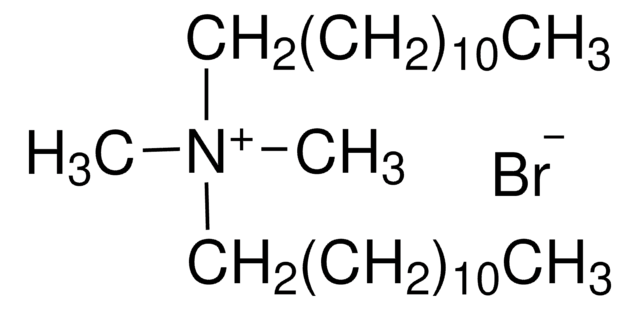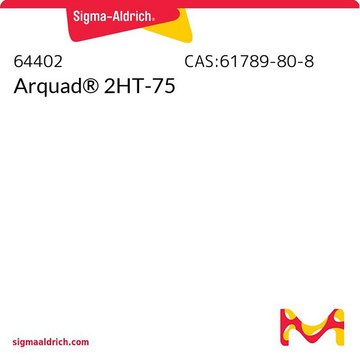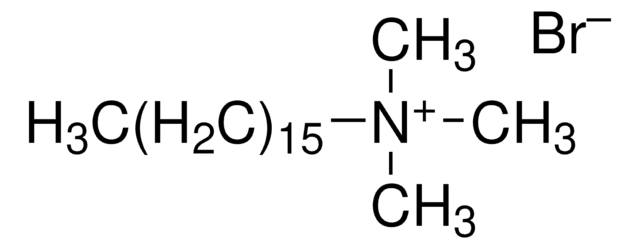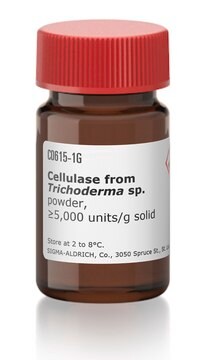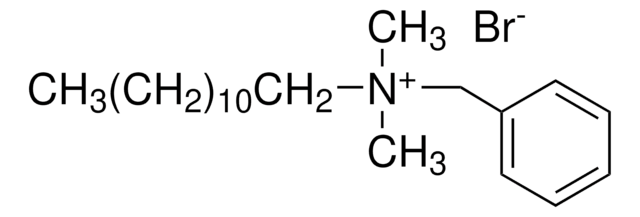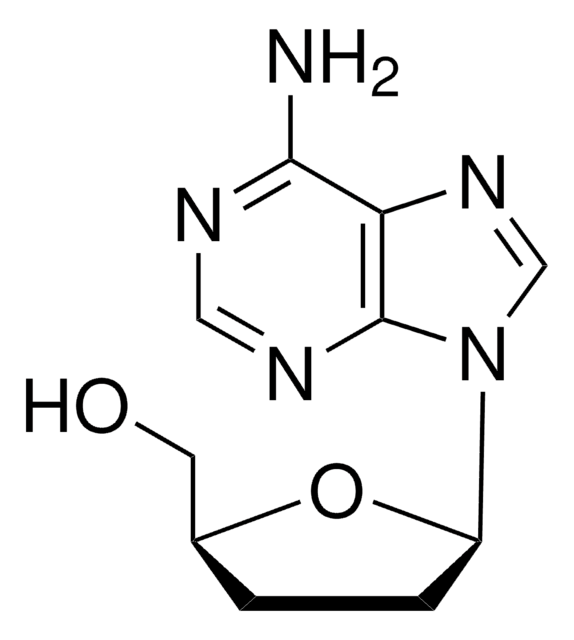Wichtige Dokumente
D2779
Dimethyldioctadecylammoniumbromid
≥98% (TLC)
Synonym(e):
Distearyldimethylammoniumbromid
About This Item
Empfohlene Produkte
Beschreibung
cationic
Qualitätsniveau
Assay
≥98% (TLC)
Form
powder
Mol-Gew.
630.95 g/mol
mp (Schmelzpunkt)
~160 °C
Anwendung(en)
cell analysis
SMILES String
CCCCCCCCCCCCCCCCCC[N+](CCCCCCCCCCCCCCCCCC)(C)C.[Br-]
InChI
1S/C38H80N.BrH/c1-5-7-9-11-13-15-17-19-21-23-25-27-29-31-33-35-37-39(3,4)38-36-34-32-30-28-26-24-22-20-18-16-14-12-10-8-6-2;/h5-38H2,1-4H3;1H/q+1;/p-1
InChIKey
PSLWZOIUBRXAQW-UHFFFAOYSA-M
Suchen Sie nach ähnlichen Produkten? Aufrufen Leitfaden zum Produktvergleich
Allgemeine Beschreibung
Anwendung
Lagerklassenschlüssel
11 - Combustible Solids
WGK
WGK 3
Flammpunkt (°F)
Not applicable
Flammpunkt (°C)
Not applicable
Persönliche Schutzausrüstung
dust mask type N95 (US), Eyeshields, Gloves
Analysenzertifikate (COA)
Suchen Sie nach Analysenzertifikate (COA), indem Sie die Lot-/Chargennummer des Produkts eingeben. Lot- und Chargennummern sind auf dem Produktetikett hinter den Wörtern ‘Lot’ oder ‘Batch’ (Lot oder Charge) zu finden.
Besitzen Sie dieses Produkt bereits?
In der Dokumentenbibliothek finden Sie die Dokumentation zu den Produkten, die Sie kürzlich erworben haben.
Kunden haben sich ebenfalls angesehen
Unser Team von Wissenschaftlern verfügt über Erfahrung in allen Forschungsbereichen einschließlich Life Science, Materialwissenschaften, chemischer Synthese, Chromatographie, Analytik und vielen mehr..
Setzen Sie sich mit dem technischen Dienst in Verbindung.